During my time traveling abroad, one of my very biggest bucket list items was Morocco. A few of my friends went during spring break, but at the time, my mom and dad were visiting from the USA, so we visited their wishlist places (Switzerland and Cinque Terre!).
I heard such incredible things about Morocco from my friends upon their return. The hospitality, the tiles, the rugs, the mint tea… It all sounded so beautiful to me!
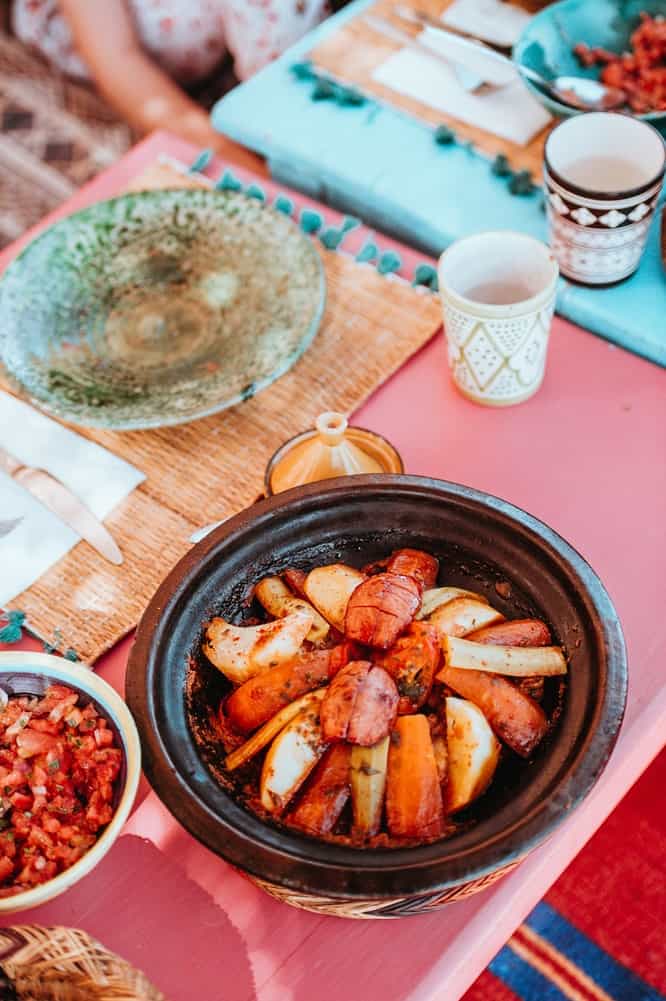
One day, I’ll get to Morocco, but until then, I’ll be living vicariously through Amanda from Maroc Mama. Amanda moved to Marrakech in August of 2013, and has lived there ever since.
Her blog features recipes from Morocco as well as information about the country and even travel itineraries! Amanda and her husband also own a food tour company that gives visitors a true taste of Morocco as well.
Keep reading to learn more about this beautiful country!
Tell me about your background with Morocco
I first came to Morocco in 2004 on a vacation and I met my husband on that trip. It’s a long story, but it was love at first sight and here we are 15 years later.
We decided to move to Marrakech in 2013 with the plan of staying for a year, but that’s turned into much longer. He is originally from here and we wanted our older kids to learn Arabic. (We have a 2yo, 13 yo and 16yo but then the kids were just 6 and 8).
We both worked online so it was fairly easy to do the move.
We decided to start our tour business because so many people were asking us where to eat in Marrakech but the places we would tell them to go are either too hard to find or they would be difficult to navigate if you didn’t know what to ask for.
The only way to share this food with them was to physically take them. That’s how the idea of the tours were born!
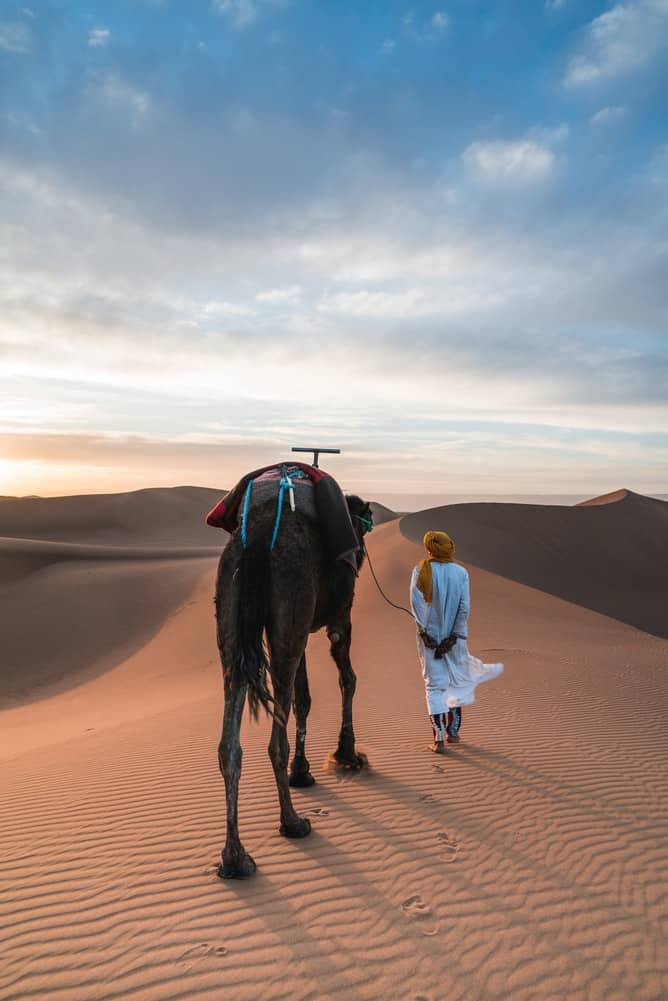
What is daily life like in Morocco?
This is a tough question to answer because it’s so normal now that I sometimes forget the differences. Overall, life here is probably a lot like your life wherever you are. It’s not all fancy buildings and vacation 24/7.
I think that’s something that many people assume from the pictures. But we still have to go to work, go to school, take the trash out – you name it!
A few differences to my life in the US though; the availability and access of year round fresh produce that is insanely affordable, bakeries everywhere (which isn’t so great for the waistline) but fresh bread is so easy and affordable.
Also there’s just nothing that surprises me anymore; you can see a donkey cart being pulled on the street, 4 people on a motorcycle, a man with a thousand eggs in cartons driving, a flock of sheep wandering down the street and a Maseratti all at the same time. That’s Marrakech.
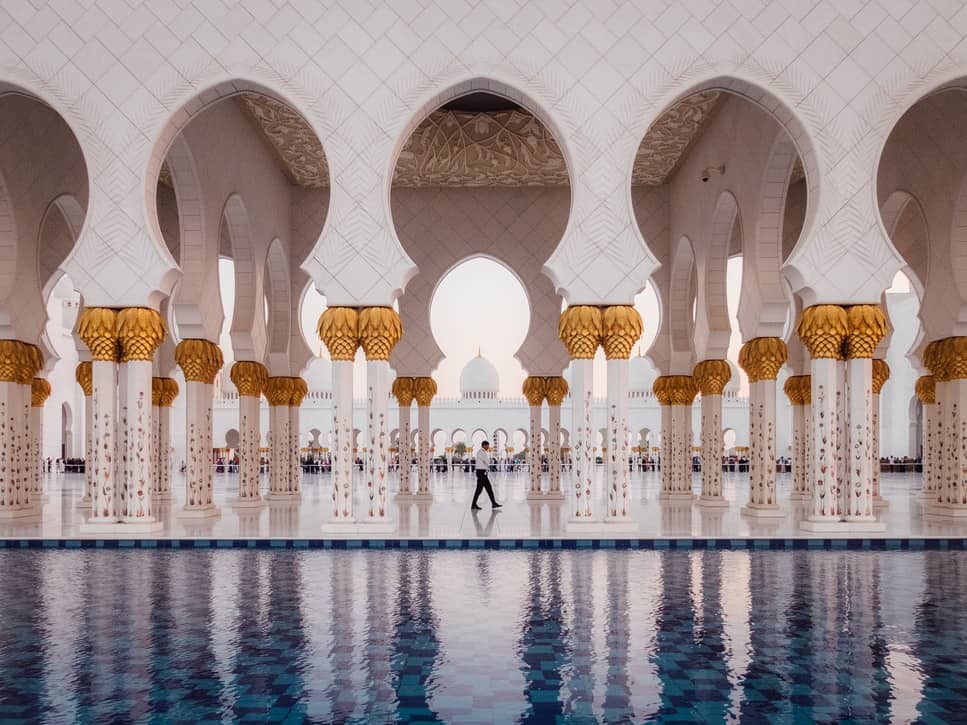
Tell me about interpersonal life in Morocco. What are interactions like between neighbors, people on the street, etc.
My own opinion is that Moroccan society is a bit like an onion. There’s so many layers to it.
Overall most people are very generous and hospitality is a big part of the culture.
But I’ve also found a lot of that is the exterior. It’s much more difficult to be accepted on a deeper level or have deeper types of relationships. So each layer you remove reveals more and more to learn and understand.
There’s a big cultural gap with some topics that are hard to overcome and understand. Also as a foreign woman I feel like I’m never really seen as a Moroccan woman nor am I man, so I exist in this weird third space where things are just different.
What is your favorite Moroccan custom or tradition? Bonus points if it relates to food!
Afternoon snack time. It makes me feel like I’m a kid again. It’s totally normal to have a late afternoon coffee/tea get together with snacks. Not everyday is over the top but it happens almost daily!
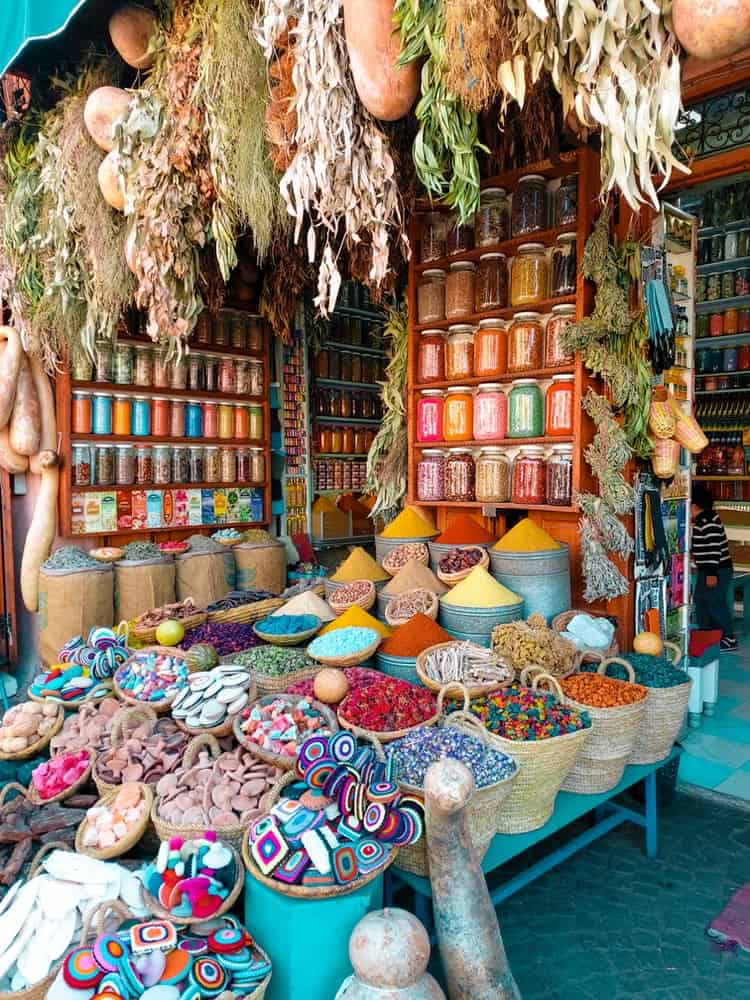
What is it like running a food tour company in Morocco? What kinds of things do you make sure get eaten on every tour? What is your #1 favorite thing to show your guests?
Challenging! Well at least it was at first, I think now we’ve gotten things down.
Tourism is heavily regulated in Morocco so there were/are a lot of hoops to jump through. But, once you get through all that, it’s time for the fun stuff.
My main goal for each tour is that people eat foods that are not on menus in tourist accessible restaurants, so you’ll never eat tajine on our tours. We also really try to be inclusive so that people who have different diets can still eat with us, but this is difficult as options can be limited especially with traditional foods.
My favorite thing to show guests are actually the cultural food stops – they’re the place guests walk past in the medina because they don’t know what’s there. Things like bread ovens, furnaces and really the underground that runs the city and traditional food scene.
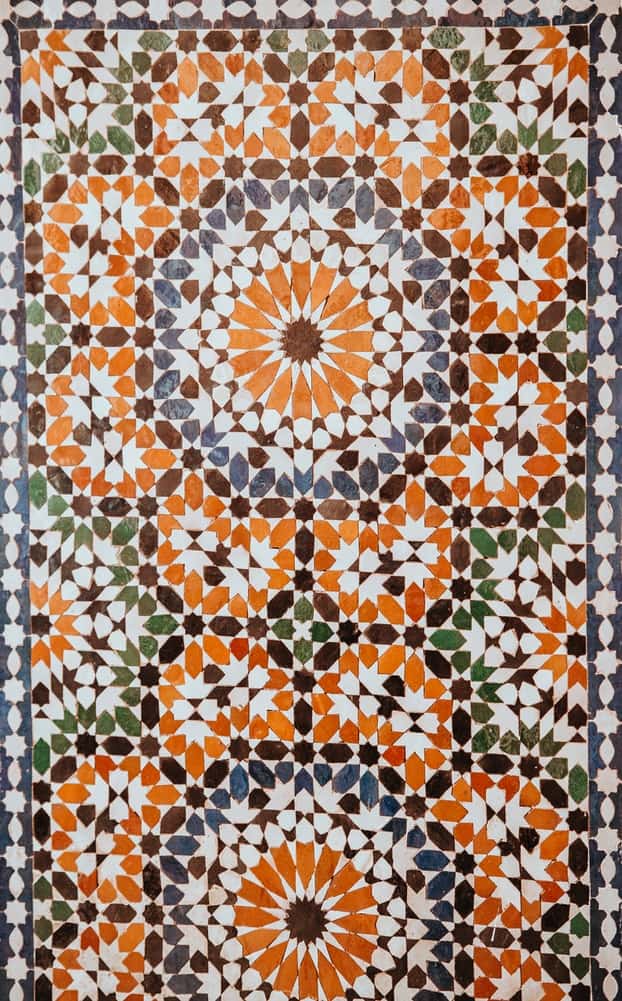
How has the history of Morocco affected the food that is eaten there today?
Morocco was an agrarian society for a long time. There’s a heavy focus on agriculture.
There’s also a strong seafood culture, which I think people don’t consider, as the country borders the Atlantic and Mediterranean Sea. Morocco was on a major trade route so throughout the years foods and ideas were introduced to the country by exterior elements.
As new people came to trade, new foods and techniques were introduced. Conversely, because certain groups DIDN’T come to Morocco, it is set apart.
A great example of this is that Morocco was never a part of the Ottoman Empire. You won’t find things like rose water or a lot of dairy dishes in Morocco.
In fact a lot of the typically Middle Eastern foods do not exist in Morocco. I can’t tell you how many people assume there’s hummus, falafel and shawarma in Morocco because it’s a “Middle Eastern” country.
Another assumption is that the food was heavily influenced by the French. But, the truth is France only had a protectorate in Morocco for a blip in the history of Morocco, not even 50 years.
What they did influence can be seen in the pastry culture. Traditional Moroccan desserts were fruit and small cookies that heavily used nuts and honey. French patisserie certainly was introduced and stayed!
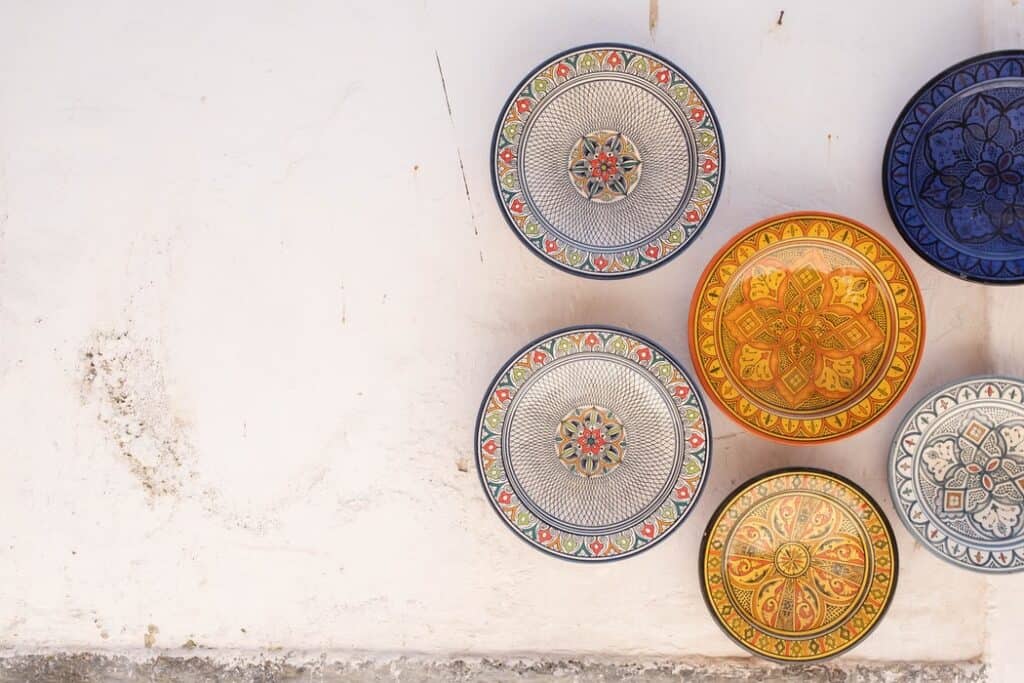
Tell me about the food in Morocco. What types of meat are common to eat? What vegetables? What spices?
The traditional diet of Morocco is heavily vegetarian with meat being added in small amounts and only when available. People didn’t eat meat daily because it was just not affordable.
Visitors to Morocco assume the opposite as most meals served to them are heavy on the meat and low on the vegetables. There’s an assumption this is what people want.
The specific meats are lamb/sheep, goat, chicken and beef. You’ll also find turkey and rabbit on occasion. While there are camels, camel meat isn’t often eaten – they’re worth a lot more alive than dead.
Vegetables and fruit are very seasonal so if it’s not in season, you probably won’t find it. Outside the sort of globally standard items like apples, oranges, carrots, tomatoes etc artichokes, fava beans, figs, quince, prickly pears, and pomegranates are a few of the more specialty items you’ll find.
Spices – the crux of Moroccan cuisine! Cumin, ginger, turmeric, saffron, paprika are a few of the spices that make up the backbone of Moroccan food.
Other items like preserved lemons, olives and harissa are condiments that add to those flavors in the dishes. Of course onions, olive oil and garlic play an important role too!
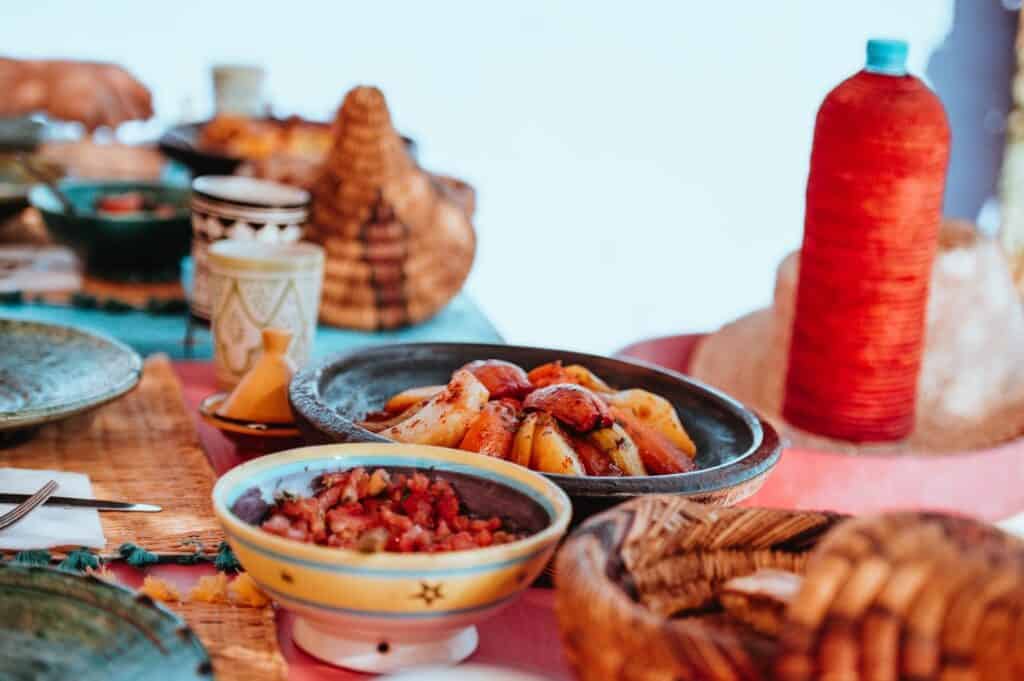
What are your everyday Moroccan foods? What types of things are common for breakfasts, dinners, snacks?
Bread, bread, bread, bread – haha but really they eat a lot of bread. Along with mint tea these are the two most common items you will find served every day, multiple times a day.
Breakfast is typically very simple in most homes; bread with olive oil and tea. Lunch is the biggest meal of the day and tajines of different varieties are usually on the table – except for Friday because that’s couscous day.
Dinners are later and lighter. It’s very normal to have dinner at 9 or 10pm. It could be something like a sandwich or pasta or another tajine!
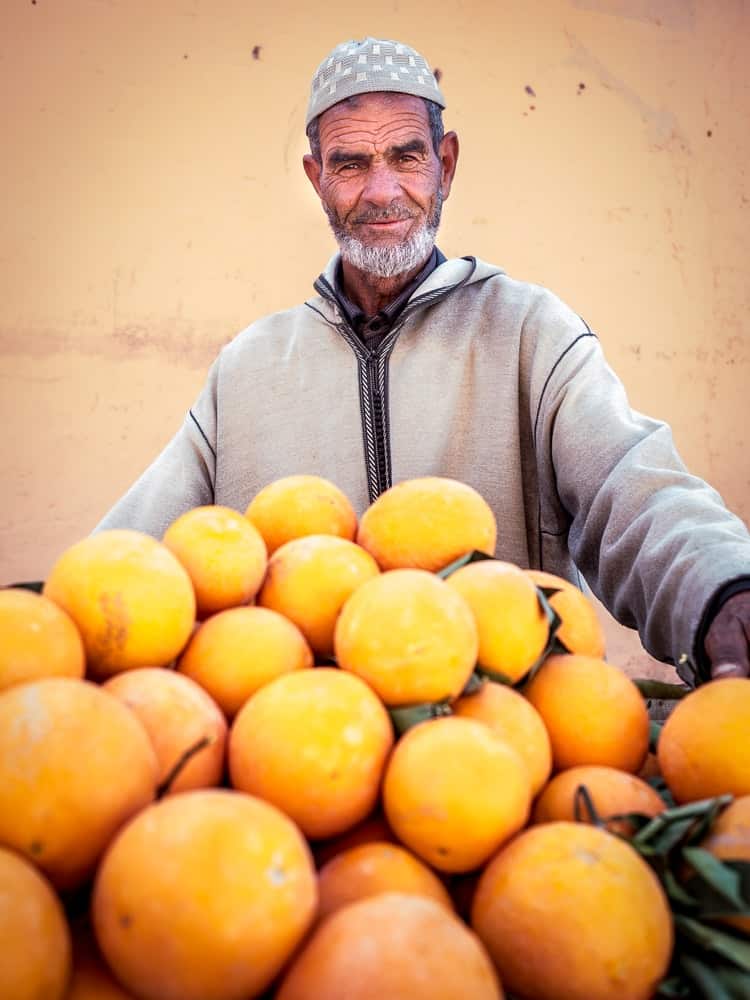
Is there anything eaten in Morocco that’s not eaten anywhere else in the world? Anything surprising?
I think argan is our most well known specialty item though it’s more global now. There is a culinary version and there’s a dip called amalou that is made with it also.
It’s ground almonds, honey, and argan oil made into a paste that is heavenly!
Surprising – Alcohol. Moroccans are 99% Muslim however there are wineries and a brewery in Morocco; it’s not a dry country.
What’s your very favorite recipe from Morocco? What is your least favorite food that is traditionally Moroccan?
My favorite food is called rfissa. It’s made with shredded bread, lentils, onions and basically reminds me of a big bowl of Thanksgiving.
My least favorite food is a tie between sheep stomach, couscous, and gdeed (a sun cured/spiced sheep meat that is rehydrated).
Are there any ingredients that you love that just aren’t the same unless you’re in Morocco?
Produce. Honestly the fruit and vegetables here are just so good and I think some of the best in the world.
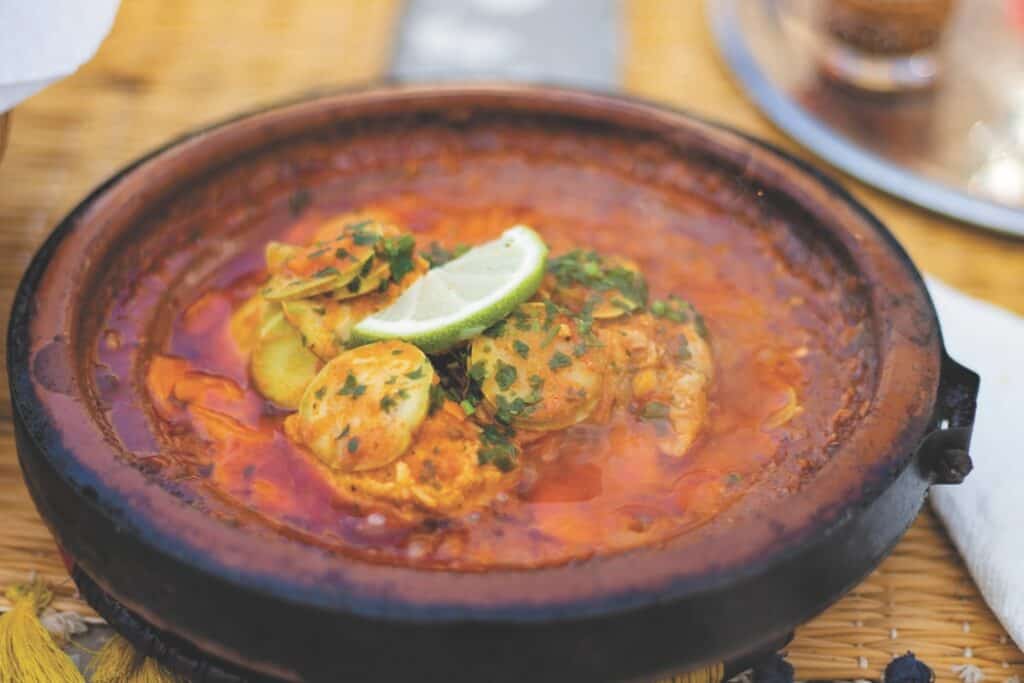
Tell me about your food blog! Why you started it, what it features, etc.
I started my website as a food blog in 2007. I really started it because my younger sister was always after my Moroccan recipes but we lived 3 time zones away from each other so this allowed her to access them without calling me at all hours of the night.
I wanted to make Moroccan food accessible to an American kitchen and with my life in mind.
Moroccan women might spend hours in the kitchen making one meal. That’s not realistic for most women in my life. It’s since grown to also include a lot of facets on life in Morocco, travel here, and how to bring Morocco home.
Maakouda are one of my favorite foods to make because they make my kids happy, too.
Thank you, Amanda, for telling us about your life and experiences in Morocco! If you liked this post, make sure to check out some of the other interviews that I’ve done, including:


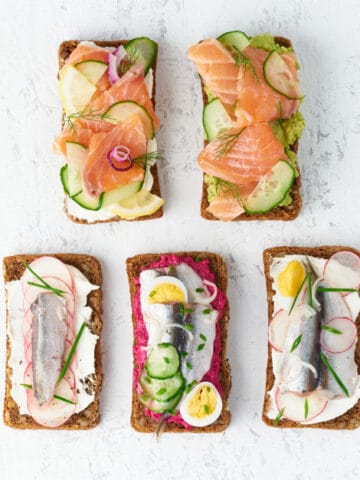
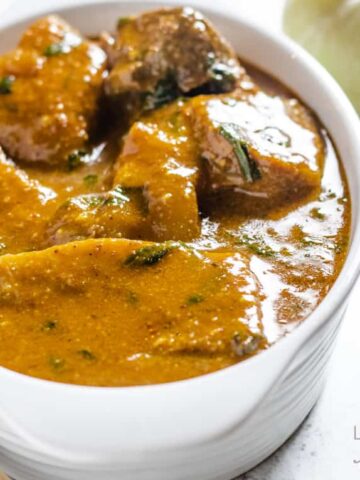
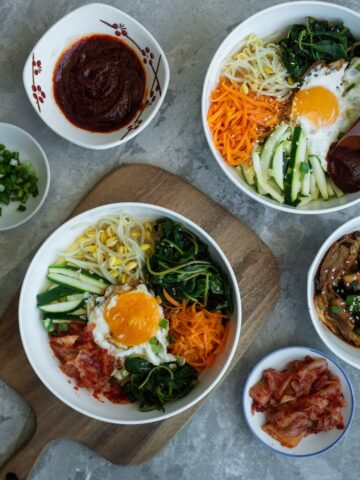
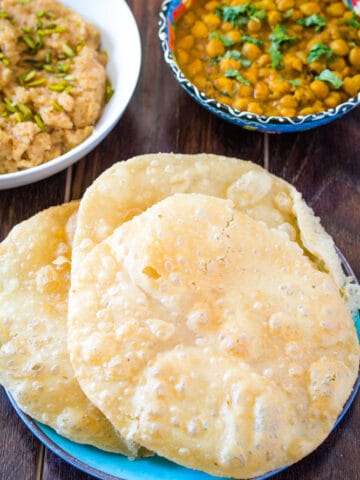
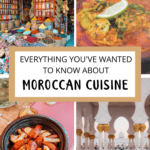
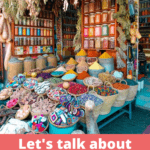
Leave a Reply